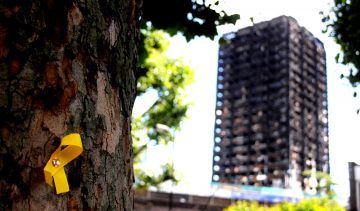Landlords Warned about Failing to Comply with Licensing Schemes
Em Morley - January 21, 2019Landlords across the country are being warned about failing to comply with both selective and statutory licensing schemes.
There is growing concern in Reading that thousands of landlords could soon face enforcement action if they do not sign up to a new statutory licence, with the deadline less than two weeks away.
Changes to mandatory House in Multiple Occupation (HMO) licensing came into force in England on 1st October 2018, requiring rental properties with five or more occupants in two or more households to be licensed.
Under the new rules, mandatory HMO licensing has been extended to almost all HMOs that are occupied by five or more people, where there is sharing of some facilities. It is expected to affect more than 160,000 properties.
The licensing scheme was previously restricted to properties that were three or more storeys high.
The change means that councils can now take further action to clamp down on the small minority of landlords that let substandard or overcrowded homes.
However, Reading Borough Council is concerned that many landlords in the area are ignoring the new rules, with the deadline to apply for a licence fast approaching.
The Council believes that just 135 of an estimated 3,000 landlords in Reading have signed up to the new licences.
Councillor John Ennis says: “Anecdotal evidence suggests that some landlords are reducing the number of tenants in their property to avoid licensing.”
Reading Borough Council rejected the Government’s decision to not allow a grace period, giving landlords until 31st January 2019 to submit their applications. Any landlord that fails to apply by the end of the month will be subject to enforcement action.
At the same time, Barnet Council is planning to introduce a stricter licensing scheme designed to crack down on rogue landlords across the north London borough.
The Council wants to replicate selective licensing schemes that are in force in other areas, with prosecution or a civil penalty of up to £30,000 for those that fail to comply with the scheme’s conditions.
Just over a quarter (26%) of households in the borough were private tenants in 2016, which is up from 17% in 2001. This is why Barnet is far more focused on stamping out substandard housing and improving conditions in the borough.
Speaking at a meeting of the Housing Committee last week, Chairman Councillor Gabriel Rozenberg, said: “In Barnet today, the Conservatives are standing up for private renters. This new agenda comprises stricter licensing controls and proposals for tougher enforcement. We are putting tenants at the heart of our borough.”
It is understood that the Council will hire additional members of staff to investigate the viability of selective licensing in the borough, as well as conduct extra housing enforcement and HMO licensing activities.
Landlords, remember to check whether the areas that your properties are in are subject to licensing schemes.


Landlords in London Are Getting Away With Letting Out Unsafe Homes
Half of London’s boroughs didn’t fine a single landlord in the past year according to Generation Rent’s latest information. In …

Landlord Pays £9,500 Penalty for Failing to Maintain Property
A Liverpool buy-to-let landlord has been ordered to pay close to £9,500 after his property failed to meet acceptable living …

Letting Agent Banned for Failing to Protect Deposits
A letting agent who failed to protect £28,000 worth of deposits and rent has been banned from the business for …

Minimum Energy Efficiency Law Delayed, But There’s a Catch
Proposed minimum energy efficiency standards have been delayed, in a move welcomed by landlords, but the delay only affects landlords …

Are We on the Brink of a Mass Landlord Exodus?
Landlords say that the private rental sector (PRS) is not what it once was. A steady barrage of regulatory reforms …